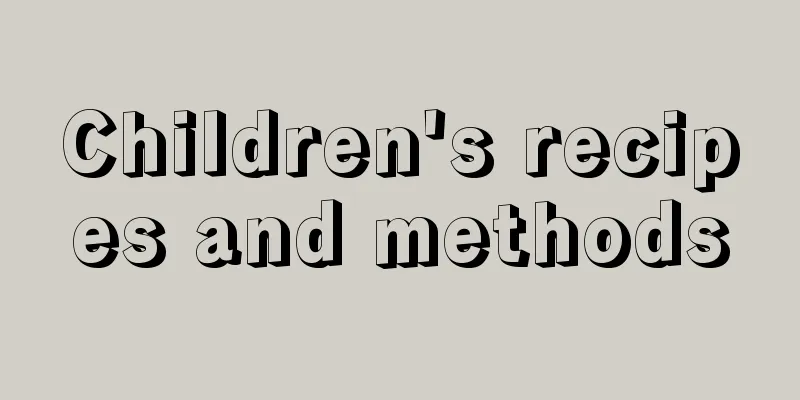Why does the baby always sneeze?

|
The birth of a child makes the family more warm and happy. However, in our daily life, along with the joy after the birth of a child, there are always some unexpected phenomena. Many newborn babies always sneeze constantly, so parents are particularly worried, fearing that their children have a cold. In fact, there are many reasons for children to sneeze. Parents should not be too anxious. Let’s understand why babies always sneeze. Why does the baby always sneeze? Frequent sneezing is a common phenomenon in babies under 1 year old, especially in the first 3-4 months after birth. If the newborn only sneezes and does not have a runny nose, it is not a cold. This is because there is mucus in the nostrils of the newborn, which is wrapped together with the dust from the outside to form small lumps. These "foreign bodies" can stimulate the nerves in the upper respiratory tract and produce an itchy feeling, which can be expelled through sneezing. Sneezing can be said to be a protective reflex of the body, which can indicate disease and expel foreign bodies in the nasal cavity in time. Sneezing is often considered a sign of a cold, but this only applies to older children and adults, and is an exception for babies under three or four months old. A newborn baby has just come out of the sealed womb that is cut off from the outside world. Any changes in temperature and humidity in nature can stimulate the rich olfactory nerve fiber endings in the nasal mucosa, inducing him to sneeze constantly. It takes a process for newborns to adapt to the external environment. As they grow older, they gradually adapt to the external environment and the sneezing phenomenon will gradually decrease. Generally, it will gradually stabilize three or four months after birth, and the frequent sneezing phenomenon will slowly decrease. Of course, babies can also sneeze if they have a cold or rhinitis, and then they need to see a doctor. How to care for a newborn baby who sneezes A newborn's sneezing is usually related to the stimulation of cold air. After you notice a newborn sneezing, you can observe whether the newborn's spirit is affected, whether he or she is listless, or whether his or her appetite has decreased. If there is no effect, the sneezing may be caused by a sensitive nose. Mothers do not need to worry too much, because the baby's nasal mucosa is relatively thin, and it is easy to sneeze when stimulated. Generally, there is no big problem. When a newborn baby sneezes, the mother can take the following care measures: 1. Help the newborn clean his nasal mucus. 2. When bathing a newborn, do not let the newborn suddenly encounter cold air. 3. Cover the newborn with a blanket at night to prevent him from catching a cold. 4. Unless the newborn already has a runny nose, parents don’t need to worry and don’t need to let the newborn take cold medicine at will. It is the wish of all mothers that every child can grow up healthily. Once a disease occurs, many parents are very anxious. The above is an introduction to why babies always sneeze. After understanding it, we know that there are many reasons for sneezing. First of all, parents must ensure that the indoor air circulation where the baby is located, and do not grow flowering plants indoors. |
<<: What is the treatment for cerebral palsy in children?
>>: What should I do if my baby has a fever after taking the vaccine?
Recommend
What are the symptoms of zinc deficiency in infants and young children?
Zinc is an essential trace element for the human ...
How to treat intussusception in children?
Intussusception in children is a disease caused b...
Why do newborns lose their hair?
It is very common for newborns to have sparse hai...
How to solve the yellow palms and soles of children
The yellow palms and soles of children may be cau...
Hand, foot and mouth disease treatment and care
Hand, foot and mouth disease is a very serious di...
Reasons why children have trouble sleeping
Children's physical health is something that ...
What is the reason for the red pimples on the corners of the baby's mouth?
It is a common phenomenon for babies to have red ...
Why does my child have bad breath in the morning?
Don’t think that bad breath only occurs in adults...
What should I do if my baby’s urinary area is itchy?
Urinating is a natural physiological reaction of ...
What are the signs of a frightened baby?
What are the symptoms when a baby is frightened? ...
What to do if your child has inverted nipples
When a little princess is born in the family, the...
How to deal with children's habitual dislocation in an emergency
The harm of habitual dislocation in children is r...
How to absorb neonatal hematoma quickly
Some parents will find one or two lumps the size ...
What foods can babies eat to help digestion?
Babies are fragile. They don’t have a strong dige...
What are the symptoms of sinusitis and adenoid hypertrophy in babies?
We all know that sinusitis is a very common disea...









